Typewriter interview with Elisa Gabbert
On writing, having interests instead of hobbies, and good midlife crisis books
Hey y’all,
My typewriter interview with Mary Ruefle went over so well, I thought it might be fun to do another one. Up next is writer Elisa Gabbert. Like Ruefle, she’s a poet whose essays knock me out. The author of seven collections of poems and essays, her latest book, Any Person Is the Only Self, is her best yet. She’s also one of the few people who make it hard for me to quit Twitter: @egabbert.
Elisa started keeping notes on all the books she finished in 2015 and started publishing the notes in 2016. You can read them all here. They’re so good they’ve made me reconsider how I do my year-end lists. (Last year she wrote an essay for The Washington Post about how sharing the reading list — show your work! — has changed her reading life: “I began reading to impress myself, to be better than myself.”)
Solid picks by Don Henley, Tom Petty, Stevie Nicks, The Cars, David Bowie, and Bill Withers. (A few of these were on her playlist for her first essay collection, The Word Pretty.)
I, too, am a big fan of The Denial of Death. Despite being a native Texan, Elisa only just read Larry McMurtry’s Lonesome Dove this summer. As part of an event series called The Geek-Out, she discussed the novel with her friend Kathleen Rooney, who co-founded the typewriter poetry site Poems While You Wait and lent Elisa a Smith-Corona Skywriter so she could do this interview. (Thanks, Kathleen!)
I’m obviously attracted to the same kinds of cross-disciplinary artists — especially writers who draw. (I’ve never been able to get into W.G. Sebald, who uses images in his texts. Elisa told me I should read Vertigo.)
I liked how similar this answer was to Mary Ruefle’s — as much as I try to be a “curious elder,” the “it’s none of my business what the youth are up to!” mode is becoming more and more appealing to me…
(A Pattern Language is one of my favorite books.)
On free will, she writes: “When I’m writing a poem, and I get stuck, it’s often because I’ve forgotten this principle: The next line could always be anything. The poem has free will; the future in the poem is not beholden to its past. This is true for any piece of writing, but poetry seems to foreground those choices, those leaps outside logic or predictability, as if the possibilities of what comes next are more infinite in a poem.”
“I grew up in El Paso and was so sad when I found that rain doesn’t smell that good anywhere else,” she says. “It’s not just basic petrichor – I think it comes from the creosote.” (She and her husband the writer John Cotter moved to Providence last year after living in Denver.)
“I don’t have hobbies, I have interests,” said George Carlin, “Hobbies cost money. Interests are free.”
Many thanks to Elisa!! I hope you enjoyed this interview as much as I did and will check out her wonderful work.
I’d love to hear from y’all in the comments, particularly if there’s somebody you’d like to see interviewed next:
xoxo,
Austin
PS. If you ever borrow an old typewriter and it doesn’t have an exclamation point, here’s what you do:



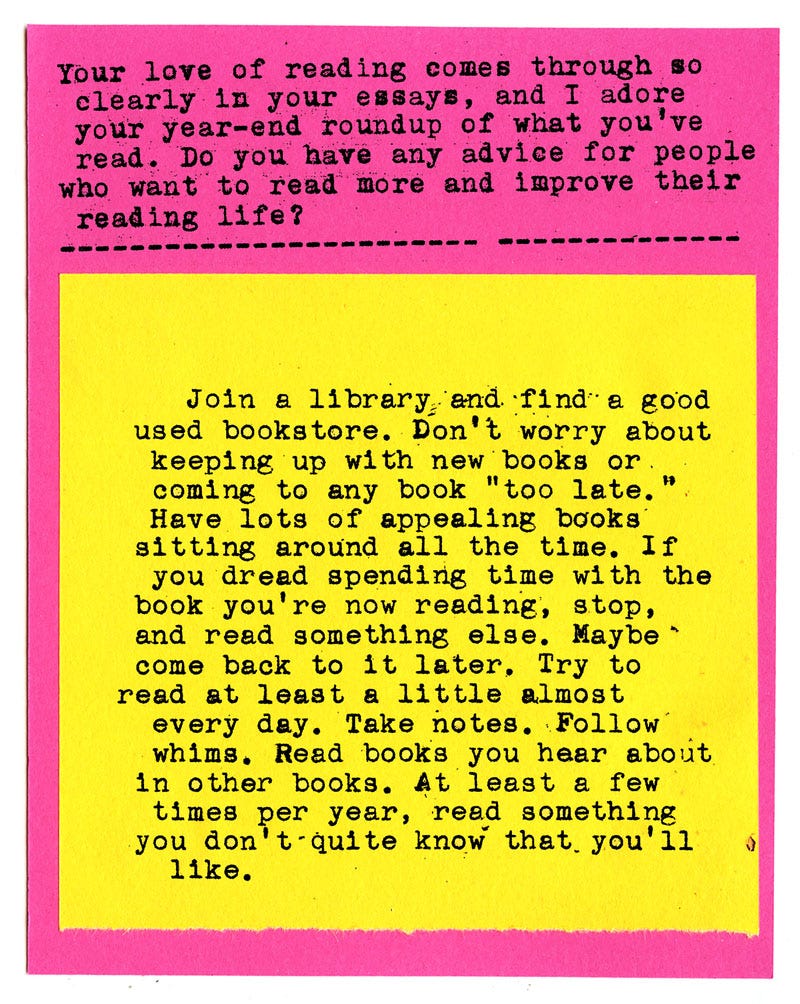
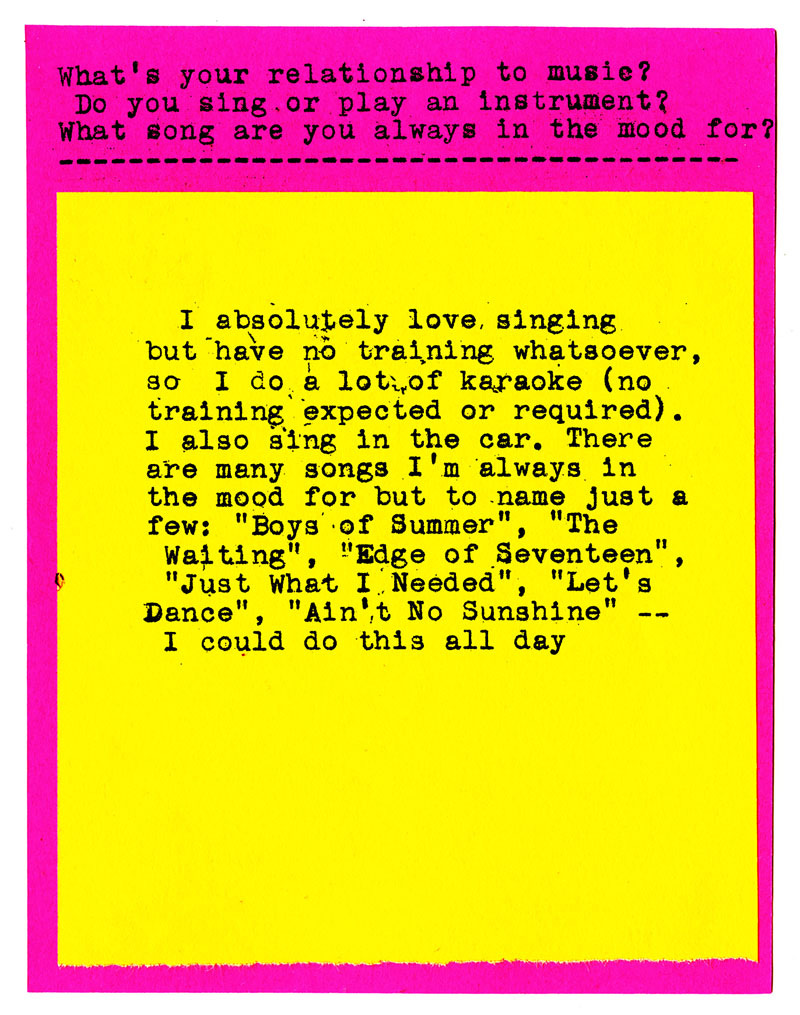
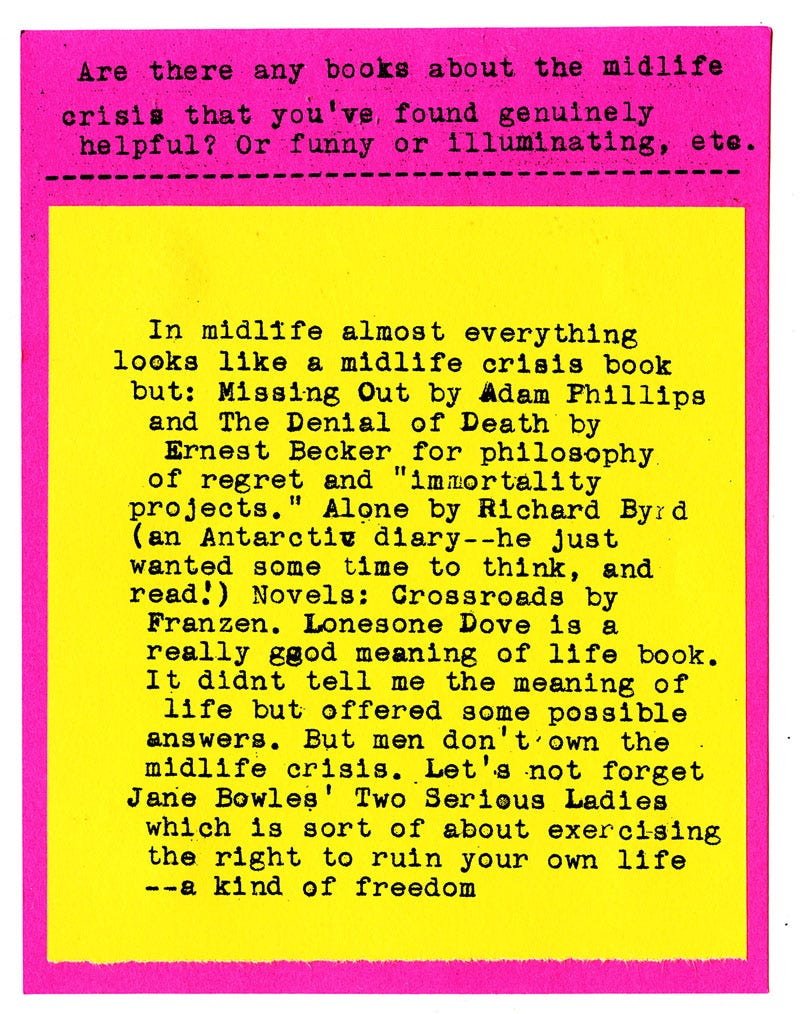
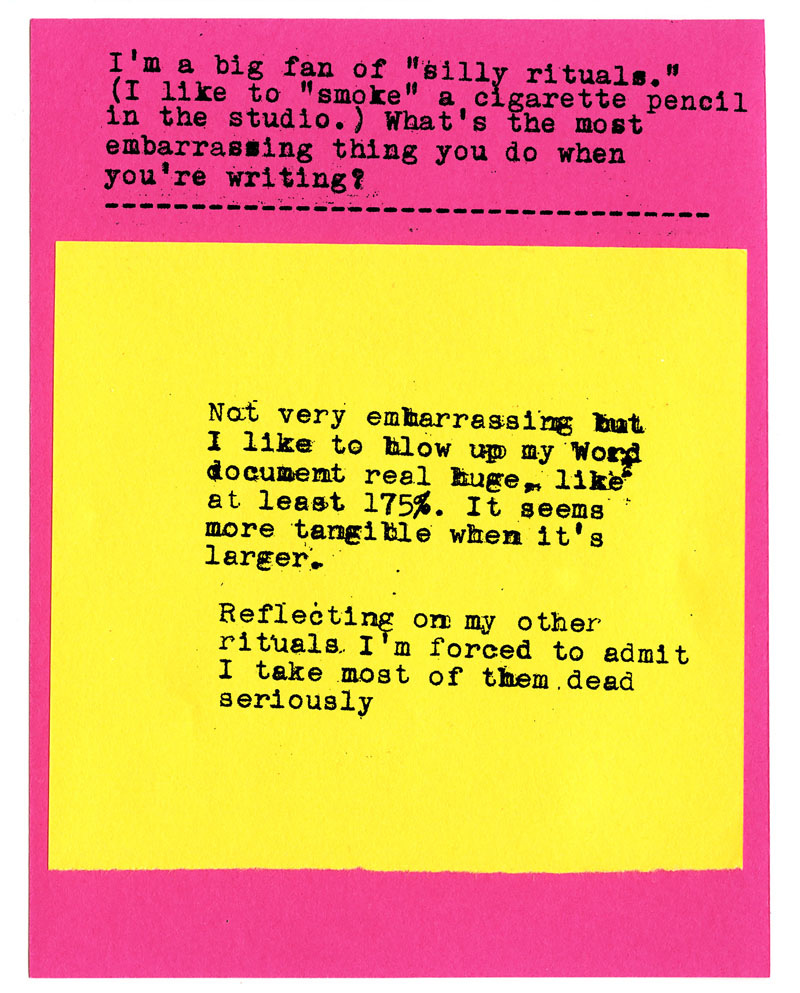
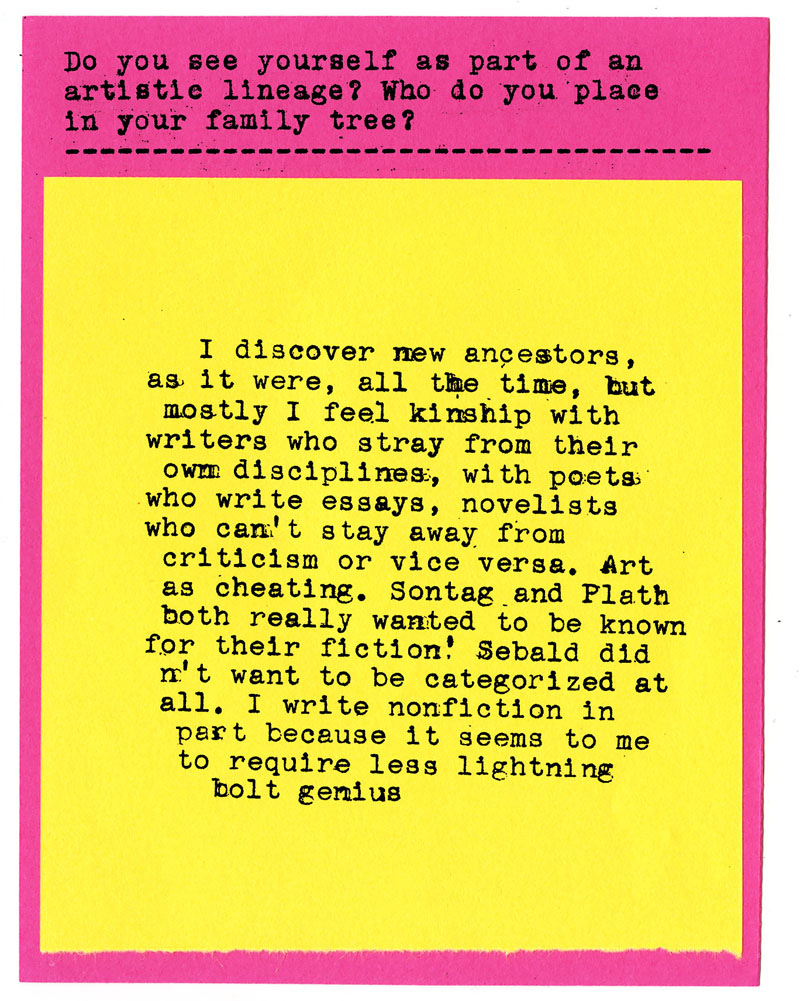
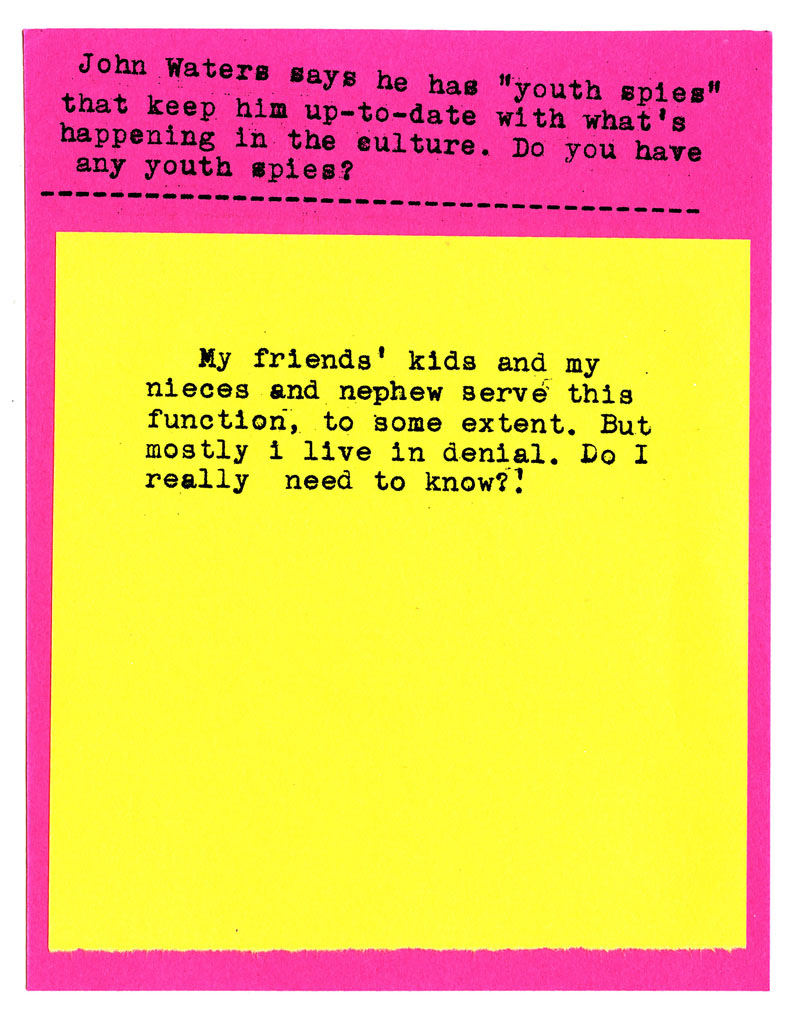
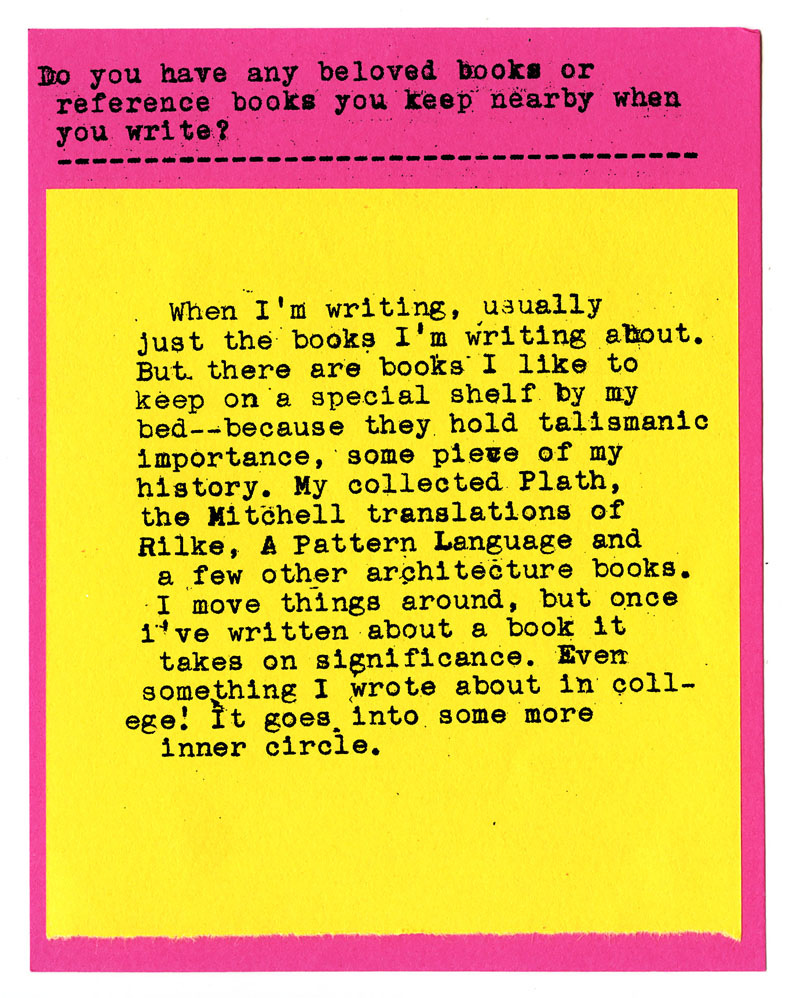
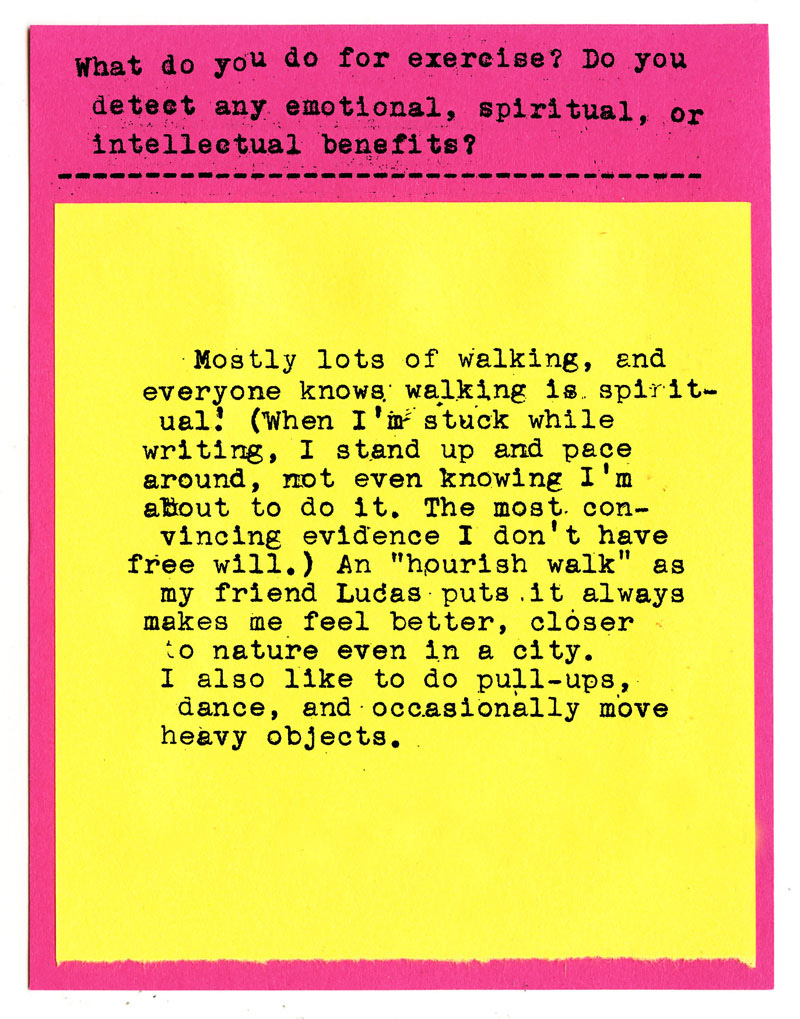
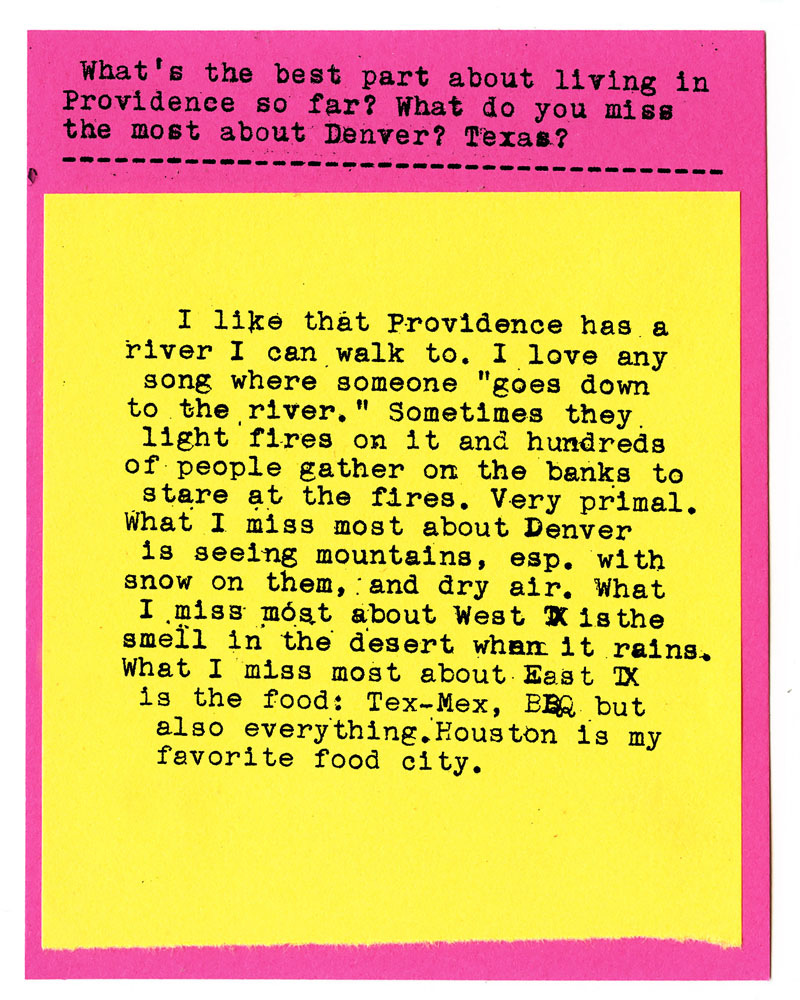
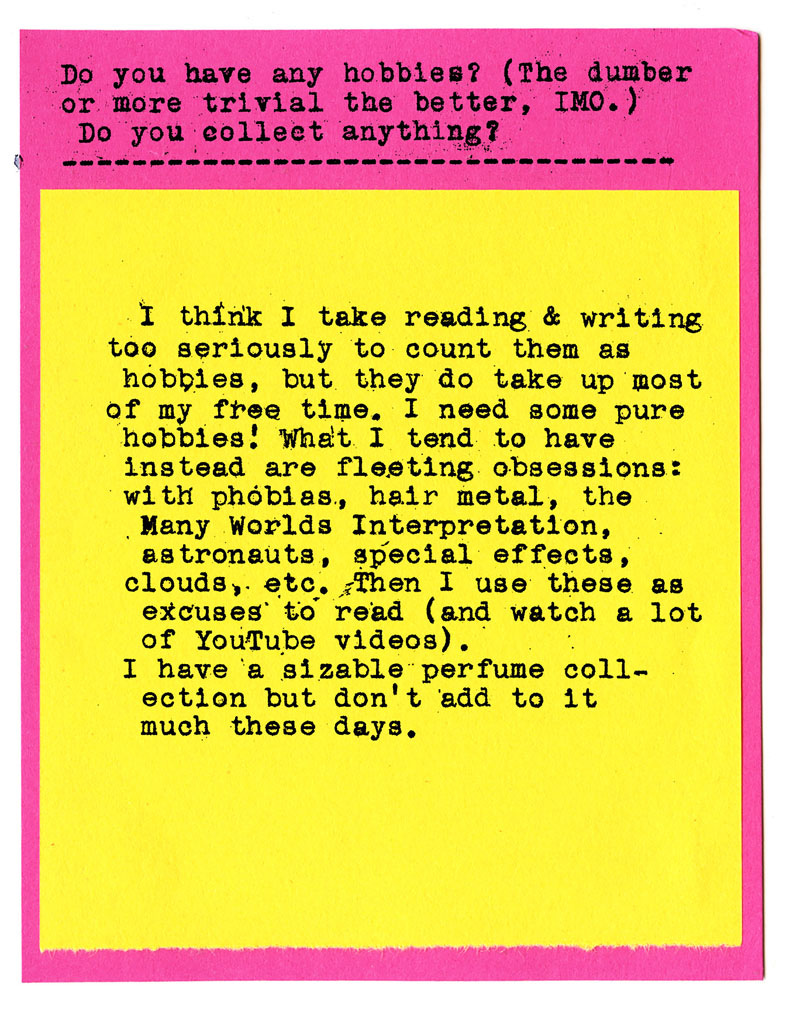
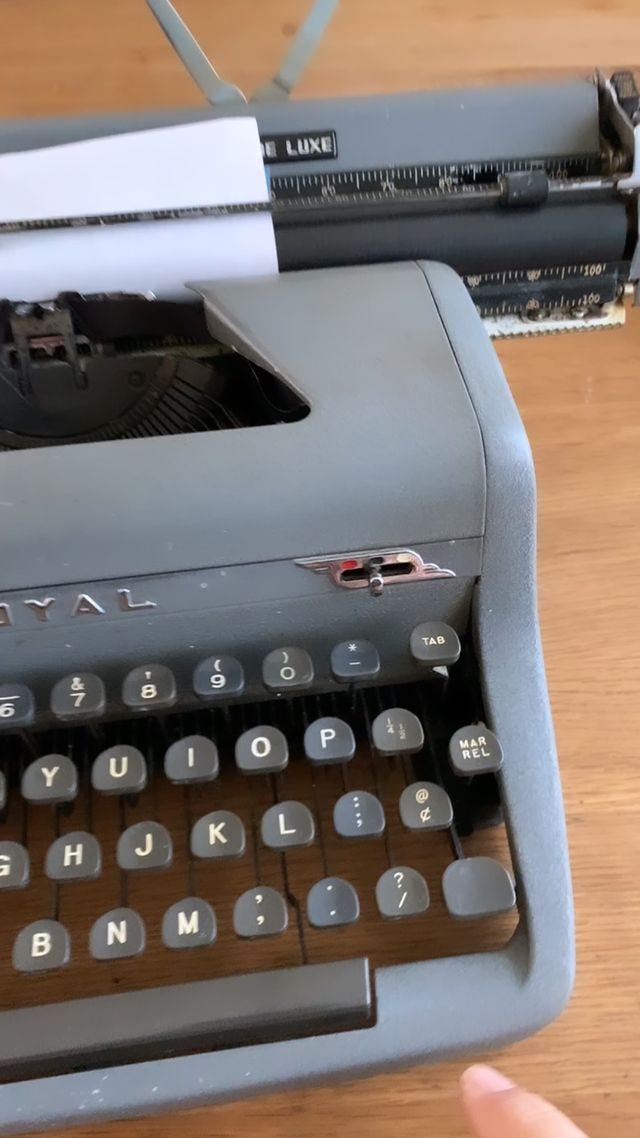
Have to say, I like typed questions and answers and I'm not sure why. For some reason, the words seemed more "alive" or maybe it was the thoughts that were more alive.
Absolutely delightful! Making a list of books to try. I really love the freedom of not worrying about what's popular, missing out or if you don't like the big book you started. Thank you for doing this interview, Austin. It's so cool to learn new ideas and be introduced to a poet I haven't read before. Great start to this Tuesday morning... oh, and instead of bedside books, I have tub- side books. I have a few favorites I reach for time and time again for baths: 30 Poems to Memorize (Before It's Too Late), Collected Works of Robert Frost, To Kill a Mockingbird, Madame Bovary and The Forsyte Saga.